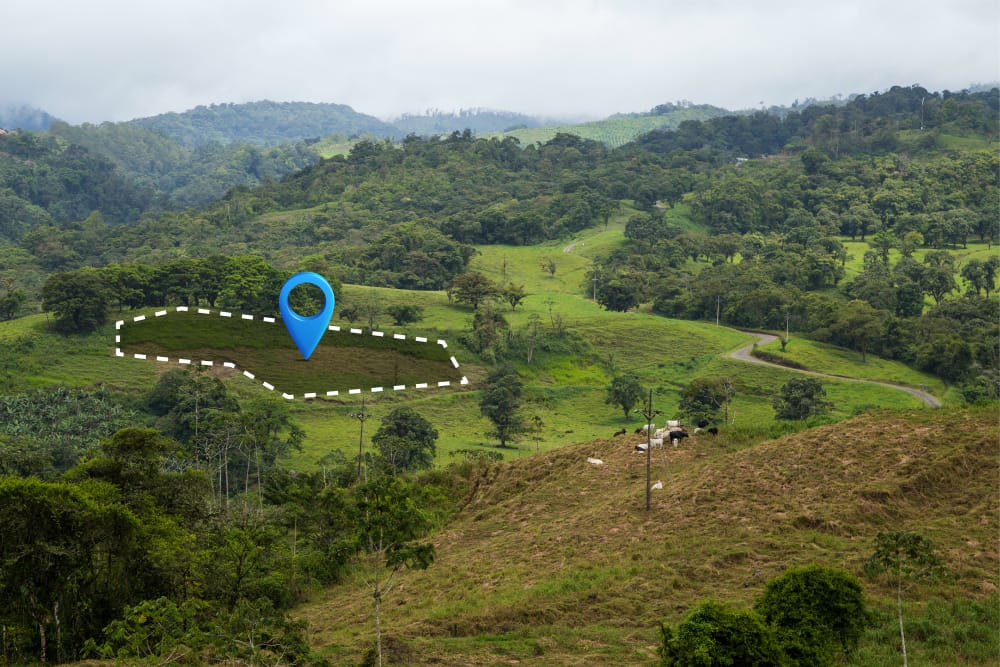
Navigating land ownership in Bangladesh can be challenging due to its unique legal framework and historical complexities. Whether you're buying land, inheriting property, or settling disputes, it's essential to verify land ownership to avoid risks. This step-by-step guide provides the clarity and confidence needed to verify land ownership in Bangladesh, ensuring smooth transactions and transparency at every stage.
Understanding the Importance of Verifying Land Ownership
Land ownership verification is not just a formality—it’s a safeguard. It protects you from fraudulent transactions, boundary disputes, and future legal complications. Given Bangladesh's dense population and high demand for land, issues like forged documents and overlapping claims are common. Proper verification ensures you’re making a legally sound investment.
The Core Documents Needed to Verify Land Ownership
Before diving into the verification process, familiarize yourself with the essential documents. These include:
- Deed of Ownership (Dalil): This primary document proves the seller’s ownership. Ensure it’s genuine and registered.
- Khatiyan (Record of Rights): This government-issued record specifies who owns the land and its type (agricultural, commercial, or residential).
- Mutation Certificate: A record confirming the transfer of ownership from one party to another.
Collecting these documents is the first step toward confirming land ownership.
Step-by-Step Guide to Verify Land Ownership in Bangladesh
- Inspect the Original Deed of Ownership: Always ask for the original deed and cross-check its details with the sub-registrar's office. Ensure the seller’s name matches the ownership details and confirm there are no inconsistencies.
- Validate the Khatiyan:
Visit the Land Office to verify the khatiyan. Match the seller’s name, land size, and boundary information against the deed. Any discrepancies should be investigated further.
- Check for Encumbrances:
An encumbrance certificate confirms the land is free from mortgages or legal disputes. Obtain this document from the sub-registrar's office.
- Cross-Verify Mutation Records:
The mutation certificate must align with the deed and khatiyan. Check whether the land is properly updated in government records under the current owner’s name.
Key Government Authorities to Visit
To verify land ownership, you’ll need to interact with several government offices. These include:
- Sub-Registrar’s Office: This is your first stop for deed validation and encumbrance checks.
- AC (Land) Office: For verifying mutation records and land classifications.
- Land Survey Department: For accurate mapping and boundary verification.
These authorities collectively ensure that all legal, historical, and boundary-related details align.
The Role of Survey Records in Land Verification
Survey records are vital for avoiding boundary disputes. In Bangladesh, surveys are conducted periodically to update ownership records. Compare the latest survey maps with the deed and khatiyan. If discrepancies arise, consult a surveyor to demarcate the land accurately.
Why Mutation Certificates Are Non-Negotiable
A mutation certificate is more than a technicality—it’s proof that ownership has legally changed hands. If the seller hasn’t completed the mutation process, the land may still be recorded under the previous owner’s name, posing a legal risk to buyers.
Investigating Legal History: Is the Land Dispute-Free?
Land disputes are common in Bangladesh. Before proceeding, ensure the land isn’t entangled in ongoing court cases. Check:
- Sub-Registrar’s Office: For records of disputes.
- Local Court Records: To uncover pending legal issues.
- Newspaper Archives: Public notices can reveal contested claims.
Legal scrutiny ensures you aren’t investing in a property with hidden problems.
Hiring a Lawyer for Land Ownership Verification
Navigating land laws can be challenging without expert guidance. A property lawyer can:
- Examine all legal documents for authenticity.
- Interpret survey and mutation records.
- Represent you in disputes or negotiations.
Investing in legal expertise minimizes risks and ensures peace of mind.
Using Technology for Modern Land Ownership Verification
Bangladesh has recently digitized many land records. Use the following resources for easier verification:
- Ministry of Land Website: Offers online khatiyan search and mutation status.
- E-Sub-Registrar’s System: Provides access to digitized deeds for cross-checking.
- GIS Mapping Tools: For boundary clarity and geographical details.
These tools reduce dependency on manual processes and enhance accuracy.
Verifying the Land’s Physical Boundaries
Beyond paperwork, physical verification is essential. Visit the property to:
- Match the boundary details with survey maps.
- Confirm there are no encroachments or illegal occupants.
- Speak to neighbors for insights on the land’s history.
Physical verification complements document-based checks and provides a clearer picture.
Red Flags to Watch Out For
When verifying land ownership, be wary of:
- Incomplete Documentation: Missing deeds or mutation certificates are warning signs.
- Discrepancies in Boundaries: Mismatched survey records indicate potential disputes.
- Unwilling Sellers: If the seller hesitates to provide original documents, proceed with caution.
Spotting these red flags early can save you time and money.
Costs Involved in Land Ownership Verification
Verifying land ownership incurs various fees, including:
- Sub-Registrar’s Office Fees: For deed validation and encumbrance checks.
- Surveyor Charges: For boundary demarcation.
- Legal Fees: Lawyer fees depend on case complexity.
Budget for these expenses as part of your due diligence.
Tips for Safe Land Transactions
Ensure a secure transaction by:
- Conducting thorough due diligence.
- Drafting a legally binding agreement with clear terms.
- Using an escrow account for payments until verification is complete.
These precautions protect both buyers and sellers.
Conclusion: Make Informed Decisions
Verifying land ownership in Bangladesh requires diligence, patience, and attention to detail. By following the steps outlined here, you can navigate the process confidently and avoid potential pitfalls. Whether you’re investing in real estate or inheriting property, due diligence ensures a smooth and secure transaction.
